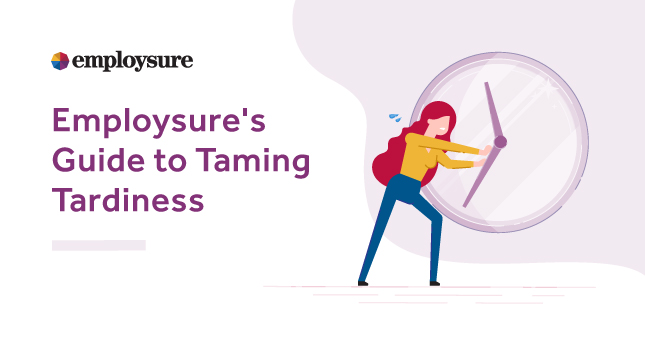
According to study, certain individuals cannot help but be late to work. This is due to their psychology and personality which hardwires them to be constantly late for both good and bad activities. Unfortunately, this does not help if you are an employer. In fact tardiness of employees has significant financial implications on businesses.
For example a company with 400 employees experiences 20 people arriving late every day, just by ten minutes or so. If the employees’ average pay is $25 an hour then these long absent minutes cost the company $4.16 each day, per person. Calculated over a year, the company ends up paying $19,302.40 for the salaries of staff who are not actually at work.
Lateness can also have a flow on effect to the productivity of other workers. We have all been in meetings when a late comer enters, who is not up to speed with the agenda and contributes to topics which have already been discussed, causing the meeting to run overtime. Another issue is when deadlines are not met and business operation lags.
So what can you do?
Set the expectation
Clearly outline to your staff their expected working hours. When hiring staff state the amount of hours to be worked each week and day. Having a clear start and finish time in employment agreements and handbooks ensures that there is no confusion.
Talk it out
The employer of a constantly late employee needs to address the situation. Talk it out to discover whether there is a problem with the employee. Are they unhappy at work? By listening to the employee, a solution can be found which will work for both parties.
Be flexible
Your staff member may be getting stuck in the car pool traffic at their kid’s school, or have an exceptionally longer commute than others. You could decide to offer flexible working arrangements to better cater for the employee’s preferred working hours.
Live by example
Being the employer, it is very important that you lead by example. Be on time if you want your employees to be.
Provide time management training
Time management training is also another way to educate what is expected of an employee. Teaching your employees about time management and giving them the tools to better perform empowers them to make a change to their clocks.
Poor performance vs misconduct
Employers need to understand the difference between poor performance and misconduct. If you’re able to identify whether the employee is late due to a lack of know how or is unaware of your expectations, you’ll need to condition them and teach them better time management. However, where an employee chooses to disobey their employer, or fails to meet the required standards, and does not comply with workplace policies, rules or procedures, this could mean misconduct and could be grounds for disciplinary action and/or dismissal.
Employsure can support employers to tame tardiness. If you are constantly experiencing lateness and would like this to change, contact Employsure on 0800 675 500.

Get Workplace Advice Now
Call Our Team of Expert Advisers Who Will Help You with Your Workplace Questions.
